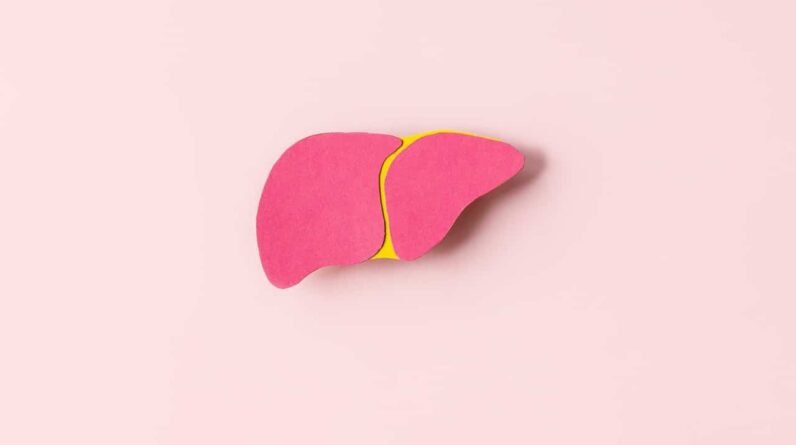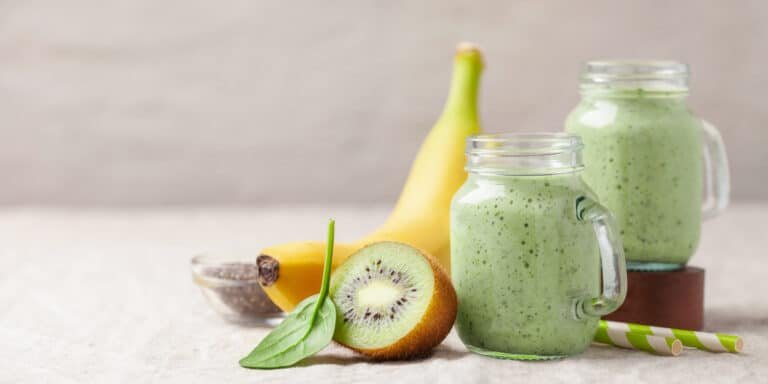
Lemon balm is an herb in the mint family, but as its name suggests, it has a lemony aroma instead of one that’s minty. While lemon balm has many healthy benefits, including aiding digestion, it is not necessarily a weight loss aid. However, adding lemon balm tea to your diet is a great way to manage your overall well-being and maintain a healthy weight.
This post may contain affiliate links, which helps keep this content free. Please read our disclosure for more info.
What Is Lemon Balm?
As its name suggests, lemon balm (Melissa officinalis) has lemon-scented leaves, although it is a member of the mint family. It contains several essential oils and compounds such as geranial and neral, which are precursors in the industrial production of vitamin A, vitamin E, vitamin K.
Although lemon balm is native to south-central Europe and central-Asia, it’s commonly found all around the world today. Lemon balm’s leaves and essential oils are widely used in medicine, foods, perfume, and supplements. Young lemon balm leaves can even be eaten raw.
Common Uses for Lemon Balm
While there are many uses for lemon balm, here are some of the most common ways to use the plant and its extracts:
- Herbal Tea – Fresh or dried lemon balm leaves are used to make a soothing, lemony herbal tea.
- Culinary Uses – Fresh leaves are added to salads, marinades, sauces, and desserts for flavor.
- Aromatherapy – Lemon balm essential oils are often used in aromatherapy because of their calming scent.
- Sleep Aid – Lemon balm teas or tinctures promote relaxation and better sleep.
- Stress Relief – Lemon balm can be consumed as tea or supplements to help reduce anxiety and stress.
- Insect Repellent – Crushed lemon balm leaves can be rubbed on the skin to help repel mosquitoes.
- Digestive Aid – One of lemon balm’s most touted uses is as a digestive aid. It can ease indigestion, bloating, and gas.
- Skin Care – Lemon balm can be added to homemade balms, lotions, or baths for its soothing properties.
- Flavoring in Beverages – Lemon balm leaves are often infused in water, lemonade, cocktails, or other drinks.
- Honey Infusion – Lemon balm leaves steeped in honey create a honey infusion for culinary or medicinal use.
- Herbal Pillows and Sachets – Dried lemon balm leaves can be used in sachets or pillows for a calming aroma.
- Herbal Remedies – Lemon balm is often used in traditional medicine for mild pain relief and to boost mood.
How Lemon Balm Tea Helps with Weight Loss
While there are many claims that lemon balm tea is an effective weight loss aid, there isn’t any strong research to back up such claims. However, lemon balm tea does have many health benefits that may lead to a healthier weight as well as an overall healthier lifestyle. Some of the health benefits of lemon balm tea include:
Supporting Digestion
Lemon balm tea is a great way to settle any bloating naturally. The herb can help calm gastrointestinal distress and provide relief. It’s best to combine lemon balm with ginger and/or mint when making a tea to help any digestion issues.
Keeping Your Gut Healthy
One way to maintain a healthy weight is to make sure your gut microbiome stays healthy. Lemon balm contains helpful compounds such as tannins, phenolic acids, and flavonoids, which help lower inflammation in your gut. Additionally, lemon balm tea has prebiotic properties, which help strengthen good gut bacteria.
Relieve Stress and Improve Sleep
Many people enjoy lemon balm tea before bed because of its stress-relieving benefits. Lemon balm tea has a calming effect, which lowers cortisol levels. Lower cortisol levels lead to a healthier weight as well as improved sleep quality. One study suggests that drinking lemon balm tea helps people feel less depressed and anxious than those who took a placebo. While lemon balm tea shouldn’t be a replacement for anti-anxiety medication and antidepressants, it wouldn’t hurt to add it to your overall health routine.
Blood Sugar and Lipid Control
Compounds in lemon balm may help regulate blood sugar and improve cholesterol and triglyceride levels—factors that can support metabolic health over time. Lemon balm contains a compound called triterpene, which may help insulin work better. Maintaining balanced blood sugar can lead to weight loss.
Lemon balm tea may also help lower bad cholesterol (low-density lipoprotein (LDL)). Having healthier cholesterol levels is another way to indirectly lose weight.
As you can see, while lemon balm tea isn’t a miracle weight loss aid, it has many health benefits that can lead to a healthier weight as part of a balanced diet and regular exercise.
Easy Lemon Balm Tea Recipe
Ingredients:
-
1–2 tablespoons of fresh lemon balm leaves (or 1 teaspoon dried)
-
1 cup (8 oz) of hot water
-
Optional: honey, lemon, or mint for flavor
Instructions:
-
Rinse the Leaves
If you’re using fresh lemon balm, gently rinse the leaves under cool water to remove any dirt. -
Prepare the Leaves
Chop or tear the fresh leaves slightly to release more of their natural oils. If using dried lemon balm, you’re ready to go! -
Steep
Place the leaves in a tea infuser, teapot, or mug. Pour hot (but not boiling) water over the leaves. -
Cover and Steep for 5–10 Minutes
Cover the cup or teapot while steeping to keep the essential oils from escaping. The longer you steep, the stronger the flavor. -
Strain and Serve
Remove the leaves or strain the tea. Add honey, a slice of lemon, or fresh mint if you like. -
Enjoy Warm or Iced
Sip it warm for a relaxing moment, or chill it for a refreshing herbal iced tea.
Potential Side Effects and Precautions
While lemon balm tea is generally safe for most people, there are a few possible side effects you should know about:
1. Drowsiness or Fatigue
Since lemon balm has calming properties, it may cause drowsiness, especially when consumed in large amounts or alongside other sedatives. It’s best to avoid drinking it before driving or doing tasks that require focus if you’re unsure how it affects you.
2. Digestive Upset
While lemon balm is often used to ease digestion, some people may experience mild symptoms like:
-
Nausea
-
Stomach cramps
-
Bloating
These are rare and usually linked to overuse or individual sensitivity.
3. Allergic Reactions
Though uncommon, allergic reactions can occur. Watch for signs like:
If you’ve had allergic reactions to other plants in the mint family (like peppermint or basil), use caution.
4. Interactions with Medications
Lemon balm may interact with certain medications, including:
Always check with a healthcare provider if you’re on medication, especially if you plan to drink lemon balm tea regularly.
5. Lowered Alertness
Because lemon balm has a calming effect on the nervous system, it might slightly reduce alertness or reaction times in some people.
6. Hormonal Effects (Rare but Possible)
Some early research suggests lemon balm might have mild effects on thyroid function. If you have a thyroid disorder (especially hypothyroidism), consult your doctor before using lemon balm consistently.
Final Thoughts
Although lemon balm tea isn’t the magic weight loss aid you were probably looking for, its many health benefits can indirectly lead to a healthier weight. Lemon balm tea is a great way to naturally relieve stress, improve sleep, and help with indigestion. Adding lemon balm tea to a well-balanced diet and regular exercise can help with better overall health.







